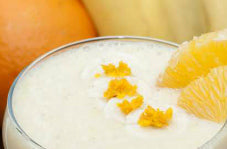Organic Ghee - is it good for your heart?
 0
0
 2015-09-02
2015-09-02

Are you staying away from ghee fearing a heart attack? This is complete sham! In fact, Ghee is the best natural way to protect yourself from heart problems.
It has been a much sought after myth that butter or ghee is not good for your heart and that it increases cholesterol levels and leads to clots in the arteries and leads to plaque formation resulting in heart attacks. Much talk has gone around since the 1920s when the problem of heart attack slowly started becoming a leading cause of death.
However, as much as we have heard these claims and turned away from organic ghee that had been traditionally used in our kitchens for centuries, we have not taken the measures to question why and how. A more detailed understanding of the scenario and how organic Ghee behaves in your body will make you understand that our ancestors where right in including ghee in their daily diet.
Here is the reality about how organic ghee functions and aids your system. Let’s unravel the mystery behind these myths.
- Ghee does not increase bad cholesterol levels
Ghee improves your cholesterol levels and does not do it by increasing levels of bad cholesterol. The cholesterol in our body can be classified into two types – i. Good cholesterol such as high density lipoproteins (HDL) that aid proper functioning of the heart and prevent heart diseases and ii. Bad cholesterol such as low density lipoproteins (LDL) and triglycerides that lead to heart problems and cause heart attacks when present in higher proportions.
The fact about Ghee that you need to know is that it is rich in saturated fatty acids. Around 63% of the total fats present in ghee are saturated. This however actually increases the HDL levels in your body. In turn, the good cholesterols that actually protect your heart are increased and prevent incidence of heart attacks. At the same time, it does not increase the level of bad cholesterol that is harmful to your heart.
- Ghee prevents plaque formation
Ghee is rich in a number of nutrients including vitamins and minerals. Vitamin K2 (menoquinone) is an important vitamin present in organic ghee that aids cardiovascular functioning and prevents heart diseases.
Vitamin K2 plays an important role in the calcium absorption and assimilation pathway. Butter also contains Vitamin D that is a precursor in the calcium absorption process. The problem with calcium is that there is constant decalcification in the body by which means calcium tends to break off from bones and also deposits itself in arteries. This often leads to osteoporosis and also plaque formation which results in heart diseases.
The Vitamin K2 and Vitamin D present in organic ghee prevent this process and thereby secure arteries from plaque formation. A recent study has established that those who had higher intake of vitamin K2 had a fifty seven percent reduced risk of dying from heart diseases and an overall twenty six percent lower risk of death due to any known health causes. Another study showed that women who were supplemented with vitamin K2 had a nine percent lower risk of heart diseases for every ten micrograms taken.
- Ghee reduces risk of heart diseases
Ghee is rich in short chained saturated fatty acid called butyric acid. This makes up for a major component in the constitution of organic ghee. The interesting fact is that butyric acid is also produced by helpful microbes in the gut. The reason being that butyric acid has the ability to control inflammation. Inflammation of the inner lining of arteries makes them narrower and often results in formation of atheroma and plaque that block passage of blood and in turn lead to heart diseases.
- Ghee protects weakening arteries
Ghee is also rich in omega 3 essential fatty acids and vitamins that reduce the risk of obesity. Butyric acid also protects weakening arteries from giving way in old age. An Australian study has proven that those who took high-fat cow butter and Ghee made out of grass-fed cow’s milk had a sixty nine percent lower risk of death from cardiovascular diseases.
On the one side, you understand how ghee is actually benefitting you by protecting you from cardiovascular diseases. On the other hand, you also need to know that margarine and other vegetable oil substitutes that you may be thinking are healthier alternatives are actually unhealthy. Many of these contain transfat that increase the bad cholesterol levels in your body, are not readily digested like ghee and most probably do not play the same protective role as ghee does.
When taken in moderate quantities as part of everyday diet, organic Ghee is definitely ‘heart friendly’ and is protective to your cardiovascular system.
To learn more about organic ghee and its uses, click here.

 Joybynature.com Team
Joybynature.com Team